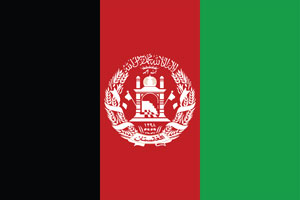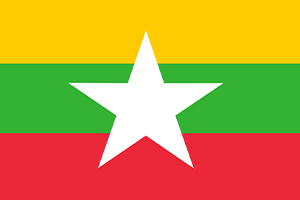IBAHRI engagement and main UNHRC takeaways
Friday 14 October 2022
With the conclusion of the 51st Session of the United Nations Human Rights Council (UNHRC), held from 12 September to 7 October 2022, the International Bar Association’s Human Rights Institute (IBAHRI) reflects on the key discussions and outcomes of the session, the side events held, and the resolutions passed.
Highlights of the main takeaways of the UNHRC
Russian Federation
The 51st session of the Human Rights Council made history by adopting the Resolution establishing a new UN Special Rapporteur on the human rights situation in the Russian Federation, for the first time. The IBAHRI welcomes the timely and much needed resolution. The new Special Rapporteur will be vital to create a bridge with Russia Civil Society. The IBAHRI particularly welcomes the reference to attacks against lawyers defending peaceful protesters, as well as the paragraph emphasising that the independence and impartiality of the judiciary and the integrity of the judicial system and an independent legal profession are essential prerequisites for the protection of human rights, the rule of law, good governance and democracy.
27 September 2022: The IBAHRI, Lawyers’ Rights Watch Canada (LRWC), the International Service for Human Rights (ISHR) and Lawyers for Lawyers delivered a joint statement, emphasising that Russian authorities have systematically attacked lawyers and human rights defenders, undermining the rule of law and facilitating the unlawful war in Ukraine. The organisations urged UNHRC members to pass a resolution establishing a Special Rapporteur to monitor and make recommendations on human rights in Russia.

China
The IBAHRI deplores that the UNHRC has rejected to hold a debate on the situation in Xinjiang, despite credible allegations of crimes against humanity. The IBAHRI commends the leadership of the Core Group of States and all 17 States members of the Council who voted in favour. We firmly condemn the 19 countries who blocked the initiative to hold a debate on Xinjiang, and regret that 11 States abstained and enabled the final result. All the more, it is regrettable that the Organisation of Islamic Cooperation States have abandoned the Uyghurs and other Muslim minorities in China by voting against their rights.
Afghanistan
The IBAHRI regrets that the Resolution on Afghanistan failed to adequately address the deterioration of the human rights situation, in particular with respect to women and girls, by establishing a dedicated investigative and accountability mechanism.
13 September 2022: During the interactive dialogue on the situation of women and girls in Afghanistan, the IBAHRI highlighted that the situation continues to deteriorate one year after the Taliban took over and called for the establishment of an accountability mechanism tasked with collecting and preserving evidence.
6 September 2022: The IBAHRI together with several civil society organisations (CSOs) co-signed a letter to the Permanent Representatives of Member and Observer States of the UNHRC, highlighting the human rights violations in Afghanistan, especially against women and girls, ethnic and religious minorities, journalists, lawyers, and human rights defenders, and the lack of accountability for such violations. The CSOs called for the renewal of the mandate of the Special Rapporteur on Afghanistan and the establishment of a dedicated investigative accountability mechanism by the UNHRC.

Venezuela
The IBAHRI welcomes that UNHRC has adopted a resolution renewing the mandate of the Fact-Finding Mission on Venezuela and of the mandate of the Office of the United Nations High Commissioner for Human Rights, for a further two years. In its most recent report, A/HRC/51/43, the Fact-Finding Mission deepened its investigation of alleged crimes against humanity, indicating that alleged perpetrators remain in power.
26 September 2022: During the interactive dialogue with the Independent International Fact-Finding Mission (FFM) on Venezuela, the IBAHRI, the Law Society of England and Wales, and Lawyers for Lawyers condemned the ongoing human rights violations and weakened separation of powers and independence of the judiciary in Venezuela. The organisations called for the extension of the FFM’s mandate so that it can continue investigations and demand the immediate release of those arbitrarily detained.
Ukraine
6 October 2022: In the general debate on agenda item ten, the IBAHRI and LRWC condemned the attacks and harassment against lawyers and human rights defenders in Russian-held areas of Ukraine and in Crimea, and called on Russia to unconditionally release and withdraw charges against those detained for performing their professional duties as lawyers or for exercising their rights.
3 October 2022: The IBAHRI co-sponsored a side event organised by The Human Rights House Crimea and Human Rights House Foundation: Ukraine: Human rights violations and militarisation in Crimea. The webinar aimed at allowing CSOs to discuss new findings on human rights violations in Crimea and how the situation is changing in light of Russia’s renewed invasion of Ukraine.
23 September 2022: During the interactive dialogue with the Independent International Commission of Inquiry on the situation of human rights in Ukraine stemming from the Russian aggression, the IBAHRI, the International Commission of Jurists (ICJ), and LRWC stressed their concern with Russia’s attacks against civilians and civilian facilities in Ukraine. The organisations urged states and the International Criminal Court to coordinate efforts promoting legal avenues for justice, accountability, and reparation.

Myanmar
30 September 2022: During the general debate on agenda item six, the IBAHRI and LRWC highlighted that Myanmar junta’s continued access to resources facilitates impunity for atrocities and destruction of the rule of law, and called on states and the UNHRC to seek a Security Council’s arms embargo, targeted economic sanctions, and a referral to the ICC.
22 September 2022: Human Rights in Myanmar: The IBAHRI and the ICJ hosted a webinar to raise awareness on the human rights situation in Myanmar. The webinar focused on the new wave of attacks on lawyers, judges, political opponents, journalists, and human rights defenders; the issues of the rule of law, fair trial and the death penalty in Myanmar; renewed threats to the Rohingya; and how the situation must be addressed. The event was moderated by Lithuania Ambassador Darius Staniulis and speakers included Wai Wai Nu (Founder and Executive Director, Women Peace Network; Founder, Yangon Youth Leadership Center), Baroness Helena Kennedy KC (IBAHRI Director), Nicholas Koumjian (Head, IIM for Myanmar) and Kingsley Abbott (Director of Global Accountability and International Justice, ICJ).
12 September 2022: During the interactive dialogue on the report of the Independent Investigative Mechanism (IIM) for Myanmar, the IBAHRI and LRWC jointly condemned the Myanmar military junta’s systematic abuse of laws to commit atrocity crimes, including executions of human rights defenders following unfair trials, arbitrary detentions, enforced disappearances and torture. They urged the Security Council to refer the case to the ICC.

The independence of the judiciary and the protection of lawyers
Democratic Republic of Congo
5 October 2022: In another statement prepared with Lawyers for Lawyers, during the interactive dialogue on the report of the High Commissioner for Human Rights and the International Team of Experts on the Democratic Republic of Congo (DRC), the two organisations condemned attacks against human rights defenders and lawyers, who experience frequent threats, intimidation, arrest and judicial harassment in connection to their professional activities. The organisations urged the DRC to safeguard the independence of lawyers.
The Philippines
5 October 2022: During the interactive dialogue on the High Commissioner’s Report on the Philippines, the IBAHRI, Karapatan Alliance Philippines, the Law Society of England and Wales, Lawyers for Lawyers, and LRWC condemned the lack of accountability for extrajudicial killings and the continued impunity for human rights violations in the Philippines, addressing, in particular, systematic attacks against lawyers. The organisations urged the UNHRC to adopt a resolution on the situation, calling on the new administration to prioritise accountability.
Occupied Palestinian Territories
30 September 2022: During the general debate on the situation in the Occupied Palestinian Territories, the IBAHRI and LRWC jointly condemned the judicial and administrative harassment of Palestinian lawyers and human rights defenders seemingly to curtail their legitimate advocacy.
Belarus
23 September 2022: During the interactive dialogue on the update by the High Commissioner on the situation of human rights in Belarus, the IBAHRI delivered a statement condemning the systematic violations against Belarussian lawyers, who are facing persecution, arbitrary arrest and detention simply for performing their professional duties. The IBAHRI urged the UNHRC to act to ensure accountability and prevent further deterioration of the situation.
Kiribati
21 September 2022: During the general debate on agenda item three, the IBAHRI and the Law Council of Australia voiced their concern with the escalating judicial crisis in Kiribati, where the government has suspended judges from two high courts and there is no transparency regarding disciplinary procedures to investigate alleged judicial misconduct. The organisations urged Kiribati’s government to guarantee judges’ fair trial rights and respect the independence of the judiciary.
Accountability for atrocity crimes
Democratic Republic of Congo
5 October 2022: During the interactive dialogue on the situation in the DRC, the IBAHRI voiced its concern regarding the ongoing conflict-related sexual violence (CRSV) in the DRC and denounced impunity. The IBAHRI called on the UNHRC to continue closely monitoring CRSV in the DRC, and on states to support initiatives aimed at addressing and preventing CRSV in the country and ensuring justice and accountability.
Syrian Arab Republic
26 September 2022: The IBAHRI co-sponsored the event UN body-created investigation mandates: the road ahead. UN bodies continue to create new investigative mandates on a largely ad hoc basis, and considering the challenges faced by such mandates, this event discussed the road ahead and whether a more effective and efficient model can be identified. The panel included Ambassador Stephen Rapp, Visiting Fellow of Practice, University of Oxford, and Federica D’Alessandra, Deputy Director, Oxford Institute for Ethics, Law and Armed Conflict.
22 September 2022: During the interactive dialogue with the Independent International Commission of Inquiry on the Syrian Arab Republic, the IBAHRI stated that the genocide committed against the Yazidis by Daesh continues, and that Syria has failed to comply with its obligations under the Genocide Convention to prevent genocide on Syrian territory. Accordingly, the IBAHRI called on the Commission to institute proceedings against Syria before the International Court of Justice.

Ethiopia
22 September 2022: During the interactive dialogue with the International Commission of Human Rights Experts on Ethiopia, the IBAHRI condemned reported war crimes and atrocities in Ethiopia, especially the use of CRSV by several perpetrators. The IBAHRI called on the Ethiopian government to ensure all CRSV cases are duly investigated, and perpetrators brought to justice. In addition, it urged states to work together to provide assistance to survivors of CRSV.
Thematic issues
Safety of journalists
The IBAHRI welcomes the adoption of the safety of journalists resolution. This resolution adds new, strong commitments on multiple emerging issues affecting journalists, from strategic lawsuits against public participation (SLAPPs) to extraterritorial attacks. It also strengthens language on investigations into attacks against journalists. The IBAHRI specifically welcomes the paragraph emphasising the crucial role of the judiciary, prosecution services and law enforcement officers in ensuring journalists’ safety, access to justice and effective remedies and ensuring accountability for crimes and attacks against them, thereby contributing to upholding the rule of law.
Enforced and involuntary disappearances
20 September 2022: During the interactive dialogue with the Working Group on Enforced and Involuntary Disappearances, the IBAHRI, LRWC and Lawyers for Lawyers expressed concern with the scale and broadness of enforced disappearances, including of human rights defenders and lawyers, particularly in Thailand and China. The organisations called on Thailand to ratify and implement the Convention on Enforced Disappearances and urged China to accept the Working Group’s 2013 request for an invitation for a country visit.
Arbitrary detention of lawyers and human rights defenders
We welcome the adoption of the resolution on arbitrary detention, and especially the inclusion of a new paragraph on the necessity to fully implement the Declaration on Human Rights Defenders. The resolution calls upon States to make sure that human rights defenders, peaceful protesters, media workers are not arbitrarily detained as a result of their activities. We IBAHRI welcomes that the resolution recognises the specific mention that ensuring prompt and effective legal assistance is of paramount importance for detainee.
19 September 2022: During the interactive dialogue with the Working Group on Arbitrary Detention, the IBAHRI and several lawyers’ organisations jointly repealed the systematic use of arbitrary detention of lawyers to deprive human rights defenders of legal representation and access to justice taking place in several countries, particularly Turkey and China. The organisations urged Turkey to accept the Working Group’s request for a country visit, and the UNHRC to create an independent mechanism to investigate the systematic human rights violations in China.
Terrorism and human rights
The IBAHRI welcomes the adoption of the resolution on terrorism and human rights. In particular, IBAHRI appreciates the additional key paragraphs related to the centrality of the rule of law and human rights to counter terrorism, international human rights obligations in transfers of terrorist suspects - including profiling of individuals and detention - the right to a fair trial and other due process guarantees. IBAHRI regrets the increase in the references to security-based concerns, which are not consistent with the mandate of the UN Human Rights Council which is to promote human rights.
5 September 2022: The IBAHRI, together with the ICJ and other CSOs, issued a letter to the Permanent Representatives of Member and Observer States of the UNHRC, describing the threats and violations to human rights and the rule of law that counter-terrorism measures can enable, and providing a series of recommendations for the text of the resolution. Recommendations included: (i) forbidding the use of the term ‘extremism’ as grounds to restrict human rights; (ii) addressing the issues of transfers of individuals by States to other countries based on national security grounds; (iii) urging respect for the non-derogable principle of non-refoulement in all situations of national security; (iv) referring to the right to effective remedy of victims of terrorism.
ENDS